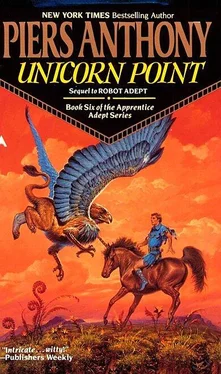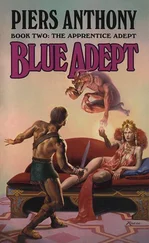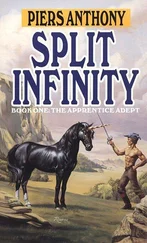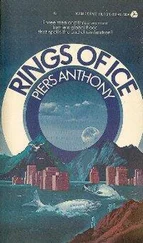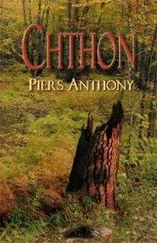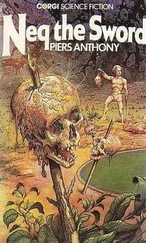Piers Anthony - Unicorn Point
Здесь есть возможность читать онлайн «Piers Anthony - Unicorn Point» весь текст электронной книги совершенно бесплатно (целиком полную версию без сокращений). В некоторых случаях можно слушать аудио, скачать через торрент в формате fb2 и присутствует краткое содержание. Год выпуска: 1989, ISBN: 1989, Издательство: Ace, Жанр: Старинная литература, на английском языке. Описание произведения, (предисловие) а так же отзывы посетителей доступны на портале библиотеки ЛибКат.
- Название:Unicorn Point
- Автор:
- Издательство:Ace
- Жанр:
- Год:1989
- ISBN:9780441845637
- Рейтинг книги:3 / 5. Голосов: 1
-
Избранное:Добавить в избранное
- Отзывы:
-
Ваша оценка:
- 60
- 1
- 2
- 3
- 4
- 5
Unicorn Point: краткое содержание, описание и аннотация
Предлагаем к чтению аннотацию, описание, краткое содержание или предисловие (зависит от того, что написал сам автор книги «Unicorn Point»). Если вы не нашли необходимую информацию о книге — напишите в комментариях, мы постараемся отыскать её.
Unicorn Point — читать онлайн бесплатно полную книгу (весь текст) целиком
Ниже представлен текст книги, разбитый по страницам. Система сохранения места последней прочитанной страницы, позволяет с удобством читать онлайн бесплатно книгу «Unicorn Point», без необходимости каждый раз заново искать на чём Вы остановились. Поставьте закладку, и сможете в любой момент перейти на страницу, на которой закончили чтение.
Интервал:
Закладка:
But where could such a path be? He had been balked by the vertical tilt of the third path, and managed to cross to this one. The mountain was not large enough for many more sites.
He retraced his route. This time he saw it: another slight ledge piking up on the other side of the vertical path. It looked as if it did not go anywhere—but that could be deceptive. He moved slowly and carefully, and managed to cross to that other ledge. Then he heard something: there was Tsetse, well up toward the peak, on the other side; all he saw was her right shoulder. Her path did go all the way up, and he had wasted time trying for this other one. But he still had a chance. He brought out another water bomb. He threw it up, not at Tsetse, but at the peak of the mountain itself. The bomb came down on the point and broke; its water flowed down mostly on Tsetse’s side. She made an exclamation of horror; then she slid down. But the slope immediately below her was not steep, and the amount of water had been slight; she managed to recover after only a meter or two.
Meanwhile, Troubot found that his new path did move on up. It was a better path than it seemed from below; the cur vature of the mountain tended to conceal it. He followed it up, and soon realized that it, too, reached the top. Tsetse was climbing again. Troubot threw another bomb, and rendered her path slippery again. She had to wait for it to clear before proceeding, and meanwhile he continued his ascent. She apparently had no bombs of her own. His deci sion to load up on them seemed to spell a critical advantage for him.
Then, as he was almost close enough to touch the peak and win, she moved. She did have a bomb; now it was looping toward him.
Its aim was good; it was going to splatter on the path just above him. He could not reach it in time. He did not try. Instead, he hurled a bomb of his own, not at Tsetse, but at the other bomb.
The two bombs met in air, and exploded. But his had been thrown later and harder, and its force carried the spray of water away from the path. Some water fell, but not enough to dislodge him. He paused to be sure the path was not too wet, then proceeded on up.
Tsetse, peering around the slope, saw this, and scrambled toward the peak herself. Troubot lobbed another bomb at her, and washed her back down to the lesser slope again. Before she could recover, he made it the rest of the way and clapped his metal arm on the top of the peak.
A gong sounded. He had won!
Tsetse, below, looked so forlorn that he knew he would have felt terrible remorse, had he been a living man of her species. But as it was, what he felt was more like joy.
13 - Clip
It was a long trek to the Ogre Demesnes, but Clip was glad for it, because it gave him time to think. He had to represent the Adept Stile against the ogres, and he was not at all sure his unicorns could win this siege. These days of travel with the Herd allowed him many hours to ponder strategies. In the evenings and nights the Herd grazed, sleeping afoot. Clip intended to do the same, but this evening he summoned his sister and niece for a conference in human form. “My mind be taut with doubt,” he confessed. “It be easy for others to say a ‘corn can beat an ogre, being faster, smarter and more versatile, but that be illusion. In single fair combat it be either’s win.”
“Aye,” Neysa agreed. She had had experience with many kinds of creatures, and had long since lost the bravado of youth.
“But can a ‘corn not run an ogre through belly or heart with horn, and be done with it?” Fleta asked.
Clip looked at her. In human form, as in her natural one, she was much like her mother. Each had the same black hide, and the socks on the hind feet: Neysa’s white, Fleti’s golden, in contrast to his own blue hide and red socks. In this human form that meant black hair and black clothing, and white or yellow socks. Neysa was old and Fleta young, but that seemed to be most of the difference between them. He was so glad they had reconciled at last! “A ‘corn can run an ogre through, aye,” he said. “But an ogre can smash a ‘corn dead with one blow o’ his hamfist.”
“But ogres change form not,” she persisted. “A ‘corn could assume an aerial form and fly in close—”
“And the ogre will throw a rock and knock that flyer out o’ the air,” Clip responded. “Their aim be deadly!”
“Then in manform, with weapons—good bows and ar rows!” she persisted.
“An ogre can hardly be hurt by an arrow; it only tickles his hide. He can throw a rock as far as an arrow can fly, so the bowman needs must look to his own hide.” Fleta was silent; she now appreciated the problem. Unicoms normally ranged the fields, running and grazing; they seldom encountered ogres, who were more attuned to the jungle, and to canyons, where there was plenty to bash. In addition, she had been much occupied in recent years with her romance with the rovot, and the raising of their foal, and the loss of that foal. How would she know about ogres?
“How relate they to music?” Neysa asked. “That be uncertain. I was traveling alone once, and was playing my horn, and came upon an ogre who seemed to be sleeping. I paused, wary o’ him, and then he woke and growled. I was tired, and sought not a fight, so pretended to see him not. I resumed my playing and trotted on, and he just stood there listening. After, I marveled, and thought mayhap he had liked my playing; the Adept Stile has termed my horn a mellow saxophone. But I be not sure; mayhap the ogre was tired too.”
“This accords with what I have noted,” Neysa said. “Me thinks the ogres like music, or at least be intrigued by it.”
Clip was interested. “Thinkst thou that many would pause for a serenade?”
“Mayhap.”
“We could do a rare show,” Clip said, working it out. “Dancing in step, to our music, keeping a strong beat. An it distracted them, it be a fan way to fight.”
“In a siege?” Fleta asked, growing excited. “But that were folly for them!”
“Ogres be magnificently stupid,” Clip said. “Folly be well within their capability.”
“But how can we be sure? If we set up to play, and it worked not—”
“Aye,” Clip said. “Needs must we verify the effect, privately, lest we run great risk.”
“I will go ahead and play for one!” Fleta said eagerly. She changed form, and pranced as she played her pan-pipe horn, two melodies in counterpoint.
Clip paused. It had been years since he had heard her play. He had forgotten her unusual talent: one horn, two tunes! It was a very pretty effect. She might have done well in the Unilympics, had she not been barred because of her miscegenation with the rovot.
Then he returned to the serious business at hoof. “Not thou, niece. Thou be too inexperienced to risk thyself thus. I will do it.”
“But we seek to know the effect o’ a chorus,” she protested, returning to girlform. “At least let me go with thee, so we can play together. That be a fairer test.”
How neatly she had diverted his decision! She had not opposed it, merely modified it. He could not have tolerated the former, for as Herd Stallion he had a position to maintain, but could accept the latter. “Aye, then. But stray thou not far from me, an we hit ogre country.”
“Nary a hoofprint!” she promised.
“Cover for us,” he told Neysa, who nodded. If anything occurred that required his attention, she would handle it with out revealing his absence. The Herd could continue grazing undisturbed. Of course there were lookouts posted; nothing would come upon the Herd by surprise.
They started out, trotting side by side. He was fatigued from the days of constant travel, but the notion of finding a way to distract the ogres invigorated him, and he stepped right along. Fleta, younger, kept pace. He had had little to do with her, because she had been absent from the Herd most of the time, but unlike Neysa, he had not condemned her association with the rovot. In fact, he had been privately un derstanding. The rovot looked just like Bane, and she had always been Bane’s friend, and more than a friend. Animals were not supposed to have sexual encounters with human beings, but there was always a certain amount of experimentation that occurred, particularly among the young. He himself, in his youth, had encountered a human village girl who had required cheering; she had shied away from him at first, until he showed her that he was a unicorn. His problem had been that he was a stallion cast out of the Herd, a “lesser male” who was denied sex with mares of the Herd until such time as he became strong enough and bold enough to challenge a Herd Stallion for dominance. Her problem had been that she loved a village lad who did not love her; she had not wished to be unfaithful to him, test he change his mind and return to her. But she did not regard a relationship with a unicorn to be significant in that manner. In addition, she was inexperienced, and wished to gain a better notion what it was all about, so that she could acquit herself well if the opportunity arose. So there had been an affair, and they had learned much together. Unicorn mares were interested in sex only when they came into heat, whereas human girls could do it anytime. It had been most interesting.
Читать дальшеИнтервал:
Закладка:
Похожие книги на «Unicorn Point»
Представляем Вашему вниманию похожие книги на «Unicorn Point» списком для выбора. Мы отобрали схожую по названию и смыслу литературу в надежде предоставить читателям больше вариантов отыскать новые, интересные, ещё непрочитанные произведения.
Обсуждение, отзывы о книге «Unicorn Point» и просто собственные мнения читателей. Оставьте ваши комментарии, напишите, что Вы думаете о произведении, его смысле или главных героях. Укажите что конкретно понравилось, а что нет, и почему Вы так считаете.
